September songs for Autumn Equinox
At the relaunch of the Farm Retail Association. What Hugh Fearnley-Whittingstall thinks about farmers markets, sourdough September, cob nuts, why wet walnuts are a thing and the Hack Poets Guild.
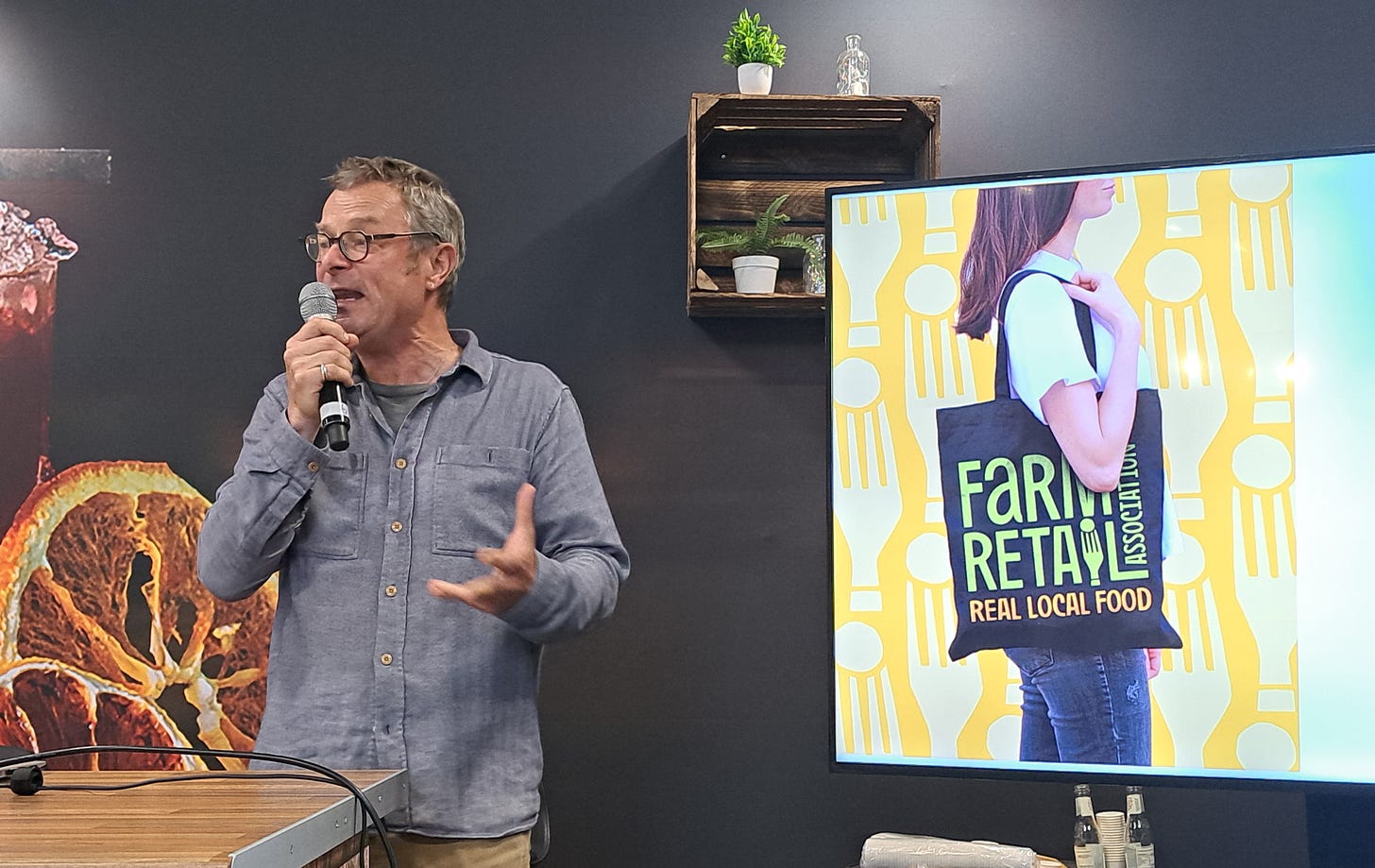
More from Hugh Fearnley-Whittingstall later.
I travelled back from France by 3 trains, accompanied by a parting gift, a flare up of gastroenteritis. The timing could not have been better; stomach pains starting as soon as I sat down on the first train. 9 days later I’m just starting to eat normally again. It’s not a great thing to happen to someone who writes about food and it made me wonder what it would be like if something similar affected a chef or recipe writer. An illness that puts me off the idea of food is not ideal.
Dutifully, the day after I arrived back, I pitched up at the Speciality and Fine Food Fair in Olympia for the relaunch of the Farm Retail Association website and logo.
The Farm Retail Association was formed in 1979 at a time when, following the UK joining the EU, inflation rates were high and farmers were struggling. Some started selling direct via pick your own. In 2004, the organisation joined forces with the National Association of Farmers Markets. It’s traditionally been a very conservative organisation, slow to progress or embrace new ideas. It took until recently for the word ‘chair’ to replace ‘chairman’, even if that person was a woman. I had many arguments over the committee table with men and some women who found the idea laughable so it’s great to hear from new chair Emma Mosey that ‘‘She’s going to do her best to make changes’’.
In the UK, there is no safeguard for the phrase farmers market. Anyone can start up a market, sell balloons and bananas and call it a farmers market, one reason for farmers markets sometimes having a bad name. It’s often frustrating to try to find a reputable farmers market. How do you know, when you find one, that the produce does come directly from the people selling it? An issue I had with the award winning Barnard Castle farmers market in County Durham, was finding a stall selling bought in meat.
The Farm Retail Association runs a certification scheme that farmers market organisations can voluntarily sign up to. If the market passes, they get signage and are added to the website. But customers don’t always check or ask questions and not all markets want to sign up. I managed to find the certification rules on the website (you have to go to sign up and reach the check out page. If you click on the link, scroll down to the bottom.)
They state that ‘The Farm Retail Association’s ‘Real Farmers’ Market’ certification scheme was devised to give the public a clear understanding of which markets are true Farmers’ Markets….and promote themselves as a ‘Real Farmers’ Market’, with clear ethical and moral principles.’
The new website and logo looks fresh and inviting. Emma Mosey spoke with energy and commitment about her determination to make farmers markets more visible, smiling as she said;
‘‘We are the human connection to the land. People come to our farms and our farmers markets, they’re interacting with what makes us human. Preserving that is as important as preserving art and culture in this country.’’
The FRA website states;
‘‘Our vision is to champion British food and support the growth of farm retailers.’’
Emma knows that the percentage of people who shop at supermarkets far outweighs those who shop at farmers market, (she noted that 85% of us shop at supermarkets). As she said;
‘‘Even if we preserve the 15% of people who shop at butchers, farmers markets and independent food shops, we can preserve, protect and grow, then we’re doing a good job.’’
Her speech included a clear message; to strengthen and grow the FRA. She added;
‘‘The essential connection to food and farming is what I want to protect.’’
She’s got a vision to build the appetite for food direct from farms. Most people don’t care whether the food they buy has a story. The only story they’re interested in is the lowest possible price to be able to feed their families.
The FRA has a challenge ahead to make more customers aware of farmers markets in the UK, and also the difference between them. Emma is all too aware that many so called farmers markets aren’t what they seem. She quoted two figures; 1,581, the estimated number of farmers markets in the UK and 2,500, a figure she found online, another farmers market estimate and as she said;
‘‘Are we talking about real farmers markets? Probably not.’’
From the stage, Hugh Fearnley-Whittingstall told the audience that;
‘‘We have a really powerful appetite for food with a great story.’’
He talked about our having a deep desire, rooted in our DNA to connect with food;
‘‘For many of us these days, it’s a question of reconnecting with food because in many places, we’ve lost our way.’’
He recognises that not everyone has the money to shop at farmers markets but he’s enthusiastic, ofcourse he is, about stories:-
‘‘When it comes to shopping and buying our food, the next best story after ‘I got it from a hedge’ or ‘I grew it myself’ is ‘I got it from someone who grew it, I met the person who grew it, I met them at the farmers market, I know their name. Getting your food from people whose name you know is an incredibly special thing to do.’’
I asked him; what would you say to someone who thinks that they can’t afford to shop at farmers markets (excuse the busy background noise.)
Before launching the new logo Emma added; ‘We’re here to help people run amazing markets, to grow and be strong. We are great for the UK economy.’
Last night a friend hosted an Autumn Equinox gathering around an open fire in her garden. We shared food we’d made including a coiled loaf of sweet tahini bread. It makes me think of Lammas loaves, harvest festival celebrations, the number of farmers who’ve had terrible harvests this year because of the weather conditions, and how we take a simple thing like a loaf of bread for granted. So maybe a good time to mention Sourdough September and the ongoing campaign by Sustain and The Real Bread Campaign for real bread.
I’m sharing a picture of a beautiful loaf of focaccia bread entered into my local flower and produce show. I judge the edible entries every year, and this was perfect.
Many years ago, I asked a greengrocer if he had any wet walnuts in stock. He looked at me as if I was mad and offered to throw water on the walnuts he was selling.
Whilst in France, my friend Liz took me on a walk around the countryside near her home. In the space of an hour we found plentiful walnut trees, cobnuts, chestnuts (the latter sadly not ripe yet), wild pears and grapes. It was a joy to find and collect them, without any competition because there are no grey squirrels in the area.
I’ve often introduced farmers market customers to cobnuts. Crunchy, sweet and juicy, over time cobnuts dry out and taste like a regular hazelnut. They’re also lovely roasted with a sprinkling of salt. As they ripen, they’ll last several months and beyond if kept well. I prefer to eat them whilst they’re young and fresh tasting. Most cobnuts in the UK are Kent grown and you’ll find them on markets from mid August through September and October. If you’d like to read more about them, do click here for the Kentish Cobnut Association.
The walnuts we gathered were still in their green gowns and had to be pried out carefully, remembering how easily walnuts stain fingertips a vengeful deep umber that makes one look like a 40 a day smoker.
Many years ago, I asked a greengrocer if he had any wet walnuts in stock. He looked at me as if I was mad and offered to throw water on the walnuts he was selling. Like cobnuts, wet walnuts are fresh and crunchy. Not to be confused with the American wet walnut, a mixture of walnuts and maple syrup. Look out for them online, at farmers markets or from specialty growers.
Another kind of September song. I recently found this fascinating website British Broadsides; offering a glimpse into 17th Century broadside ballads, the music of the streets that says more about how people actually lived than many history books. The Hack Poets Guild recreate music from broadside ballads. If like me you’re fascinated by real stories, give them a listen.
All my posts are reader supported and you make it happen. To support my work please consider becoming a paid subscriber. It’s just like buying a book, one chapter at a time. If you can’t manage that, if you hit the HEART at the top or bottom of this post, it makes it easier for people to find this newsletter, and it makes me very happy!




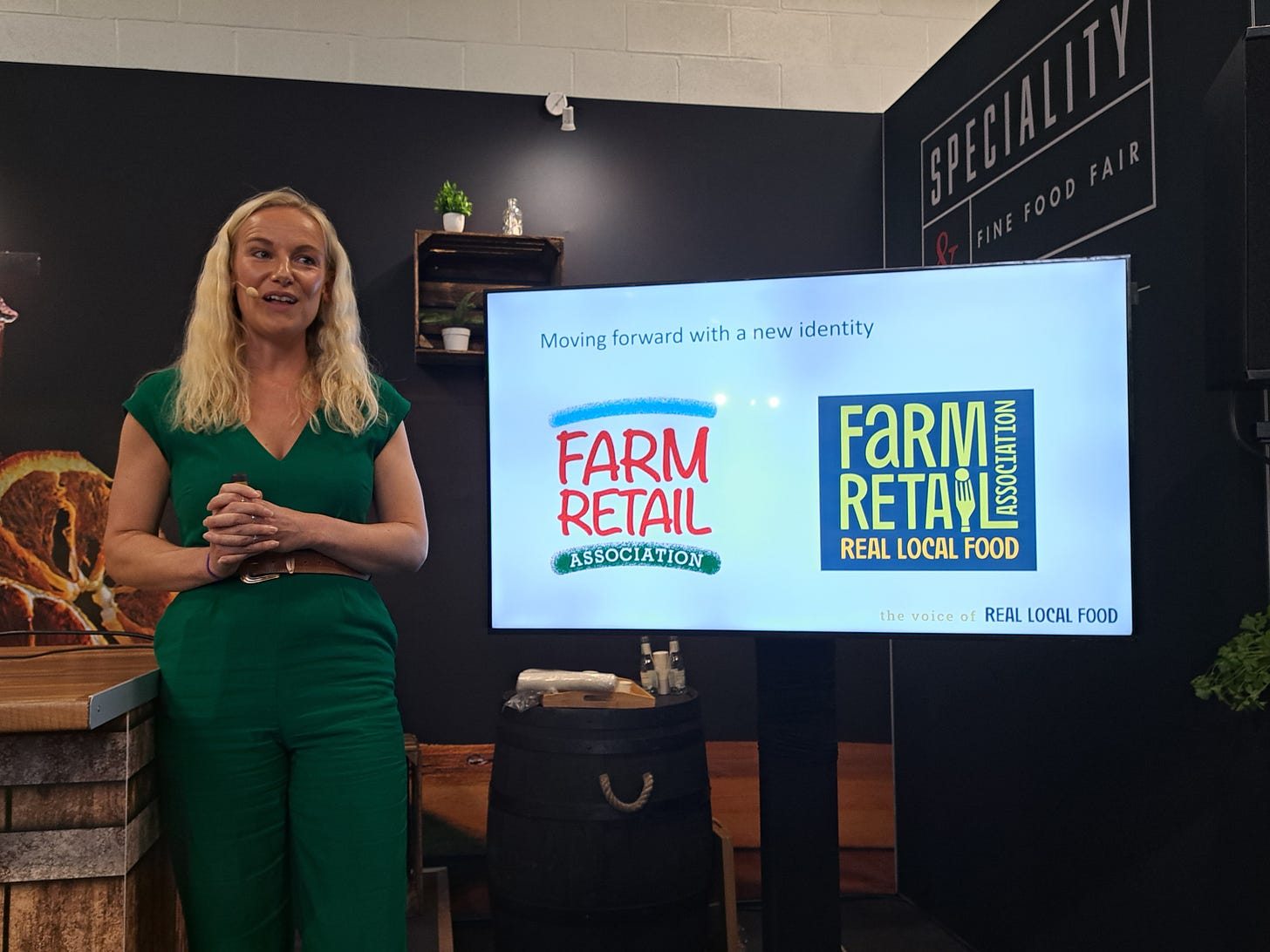
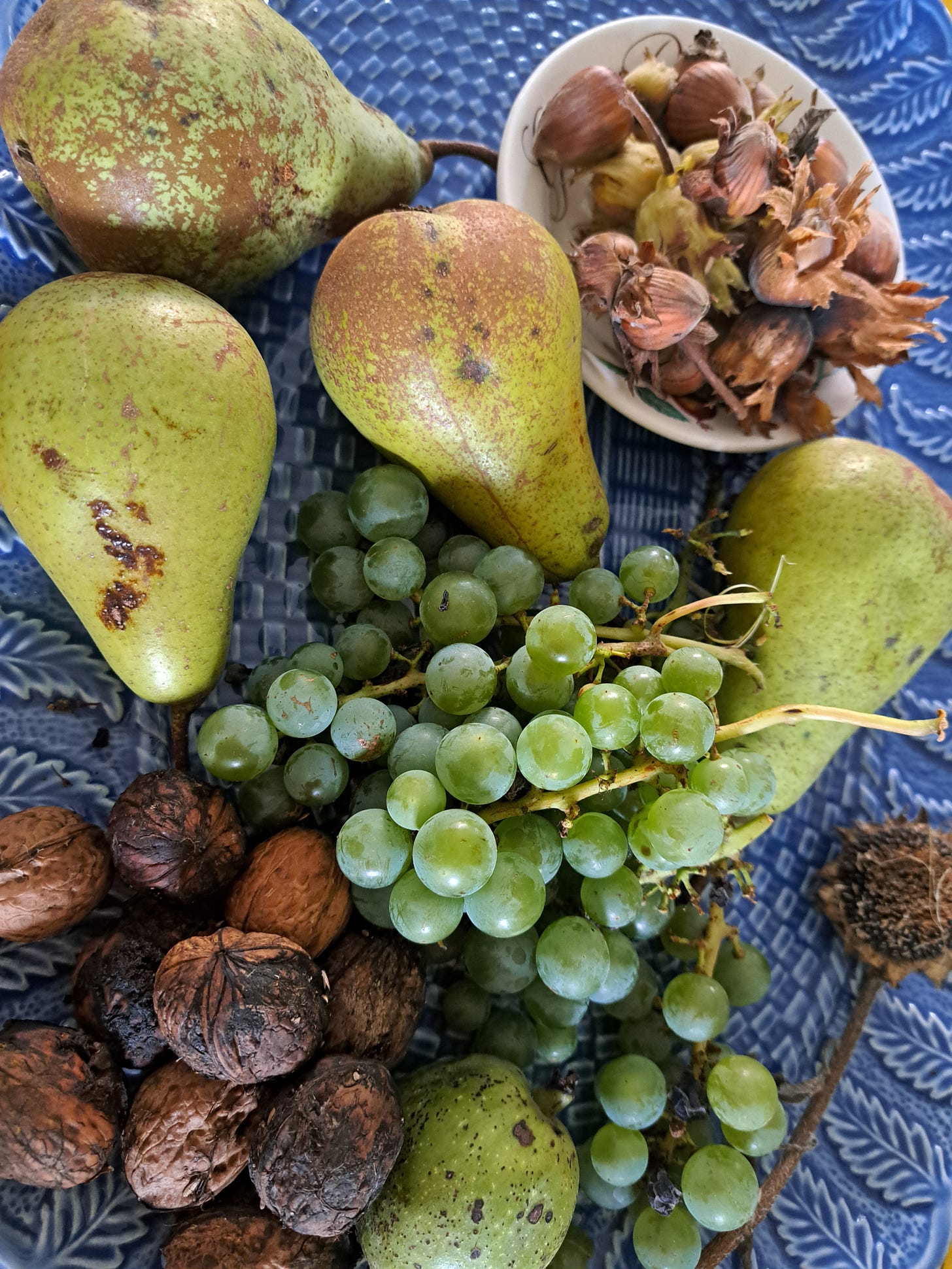
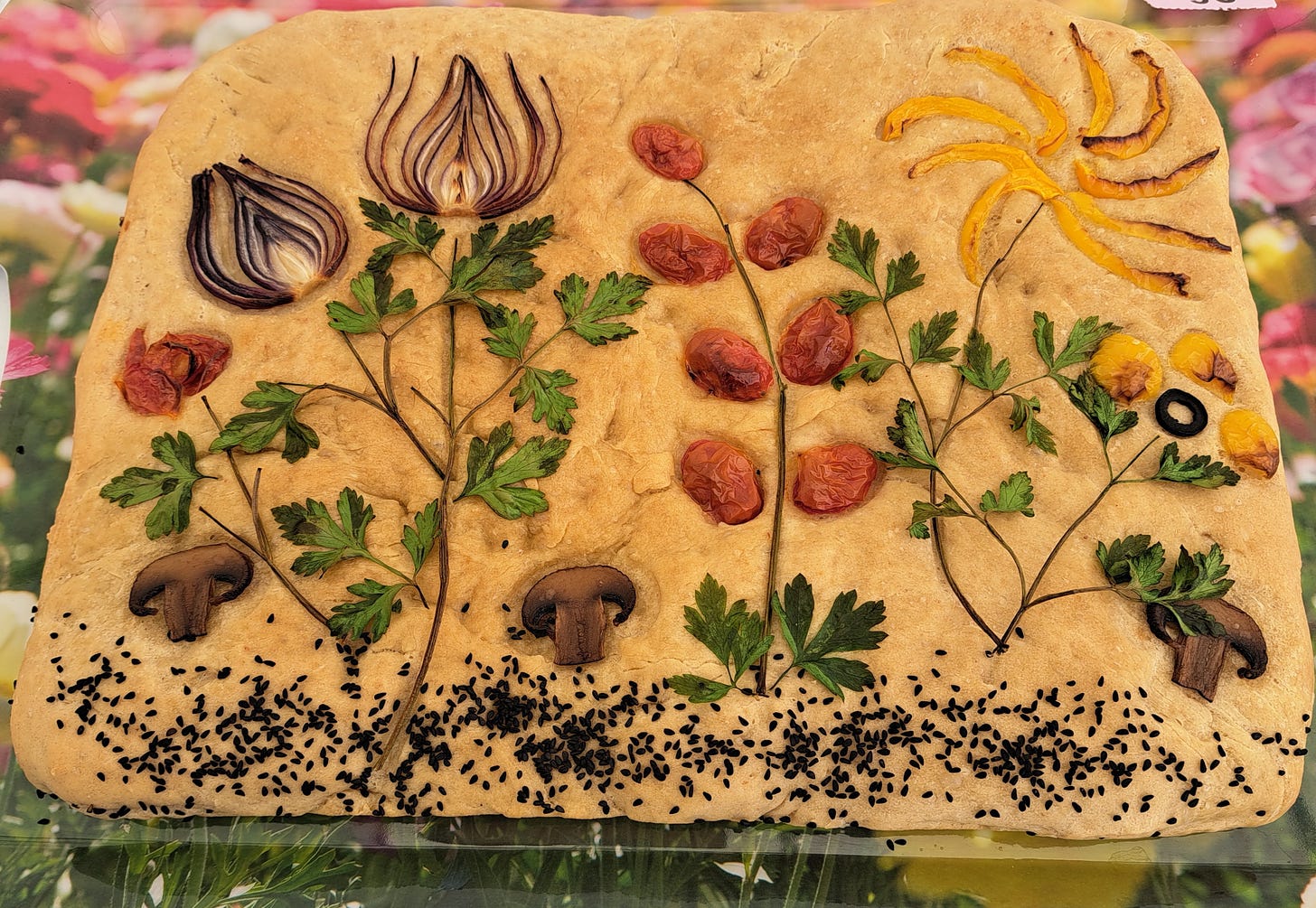
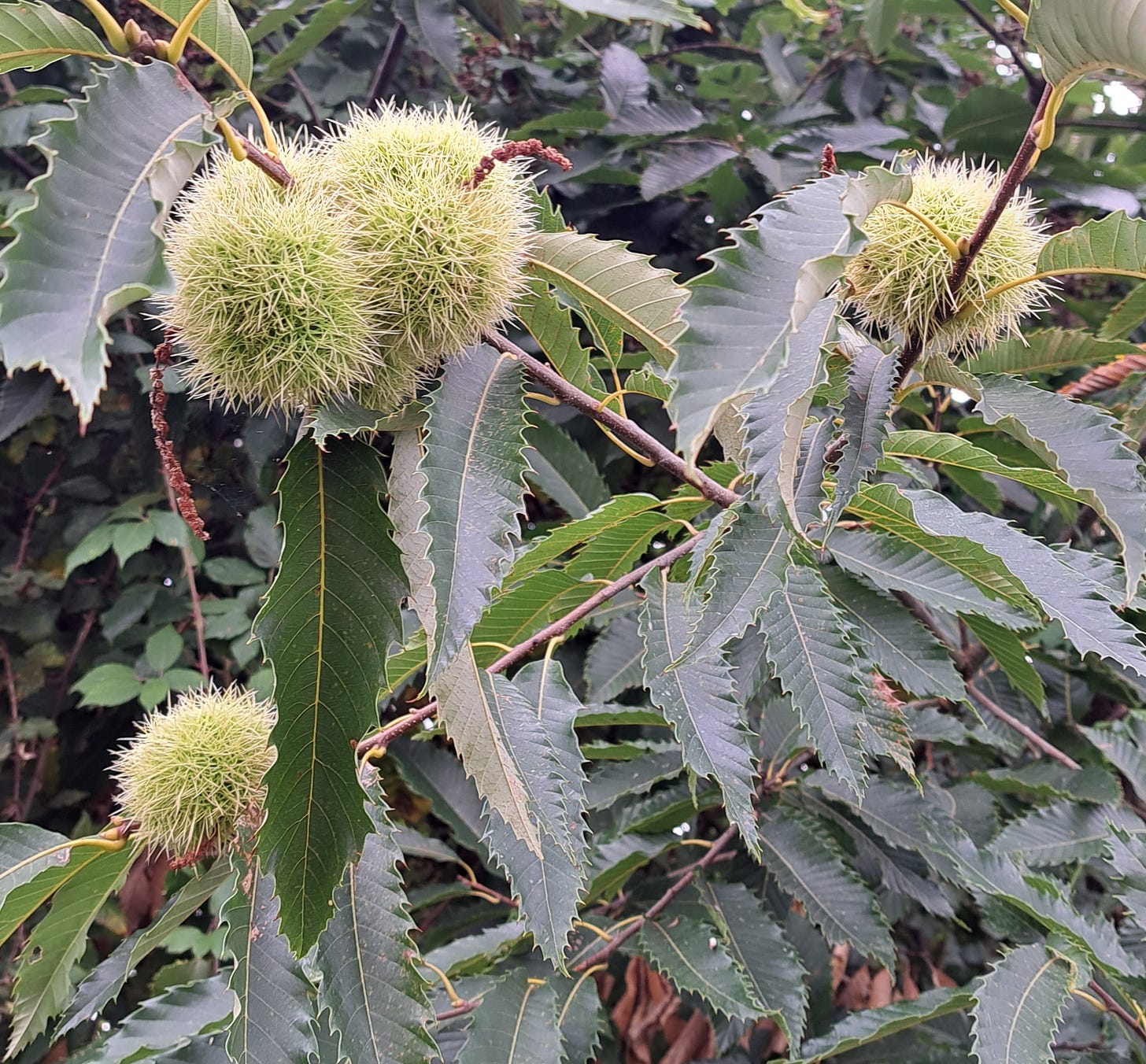
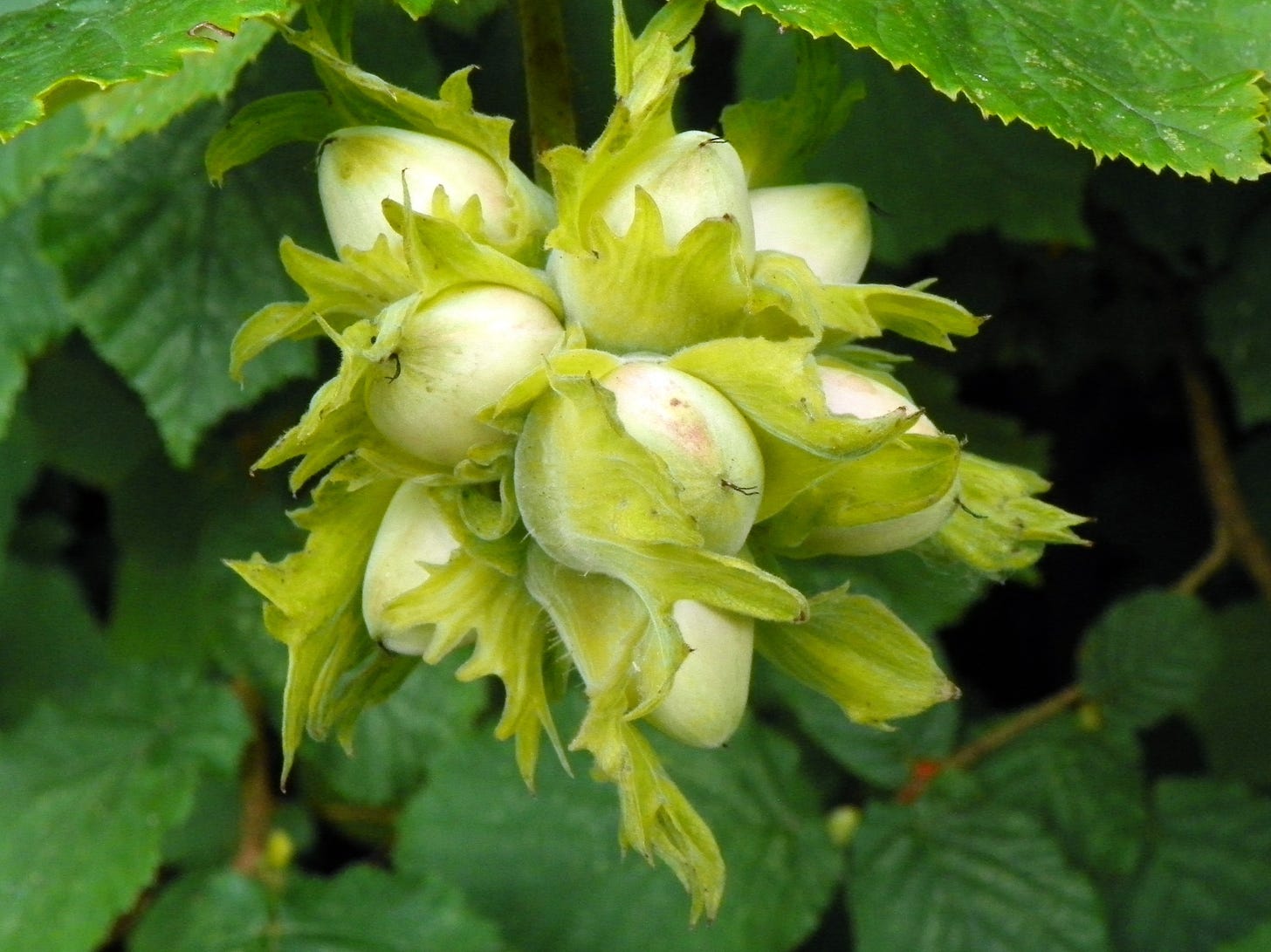
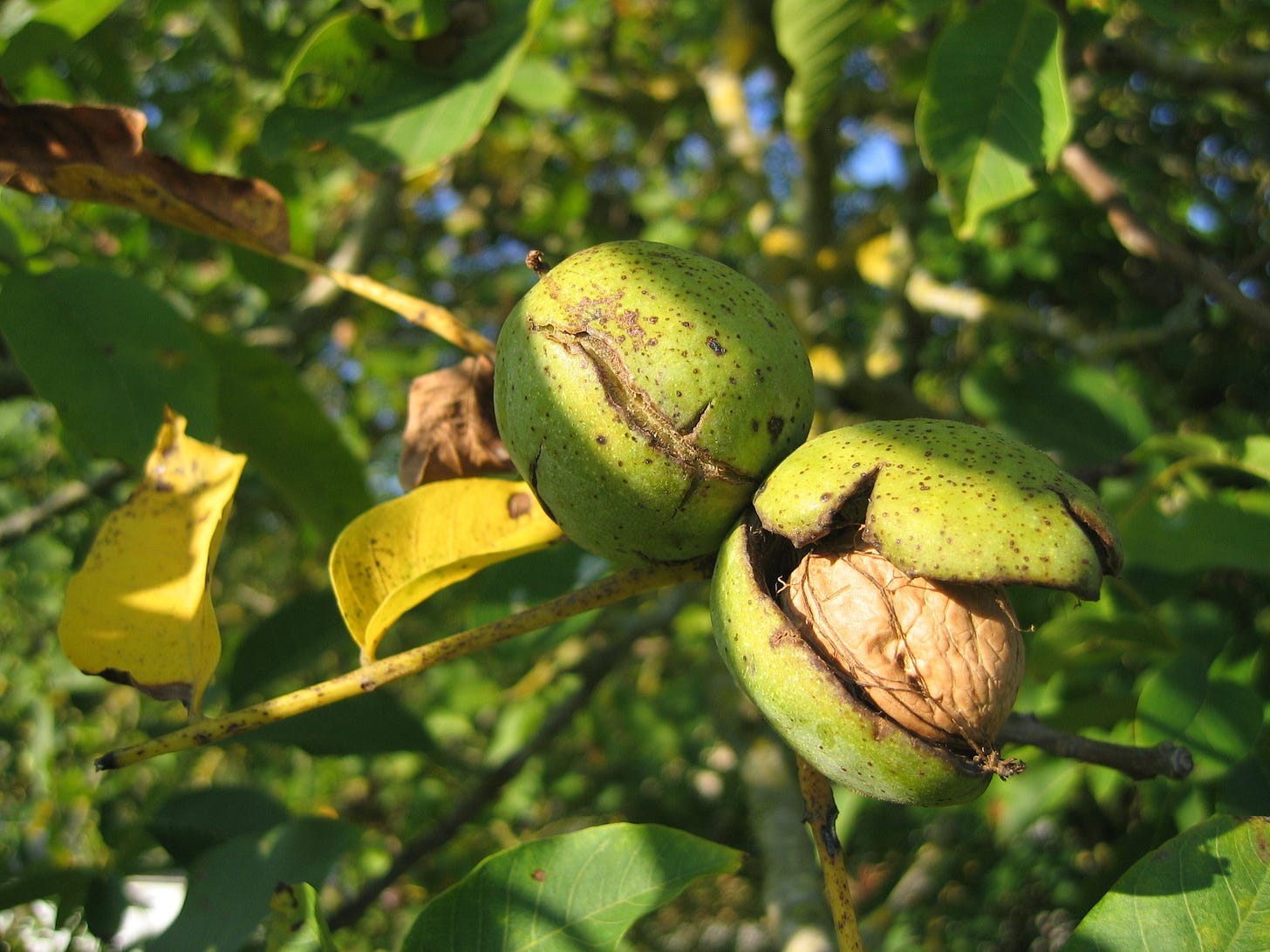
Mmmmmmm COBNUTS! Yum x